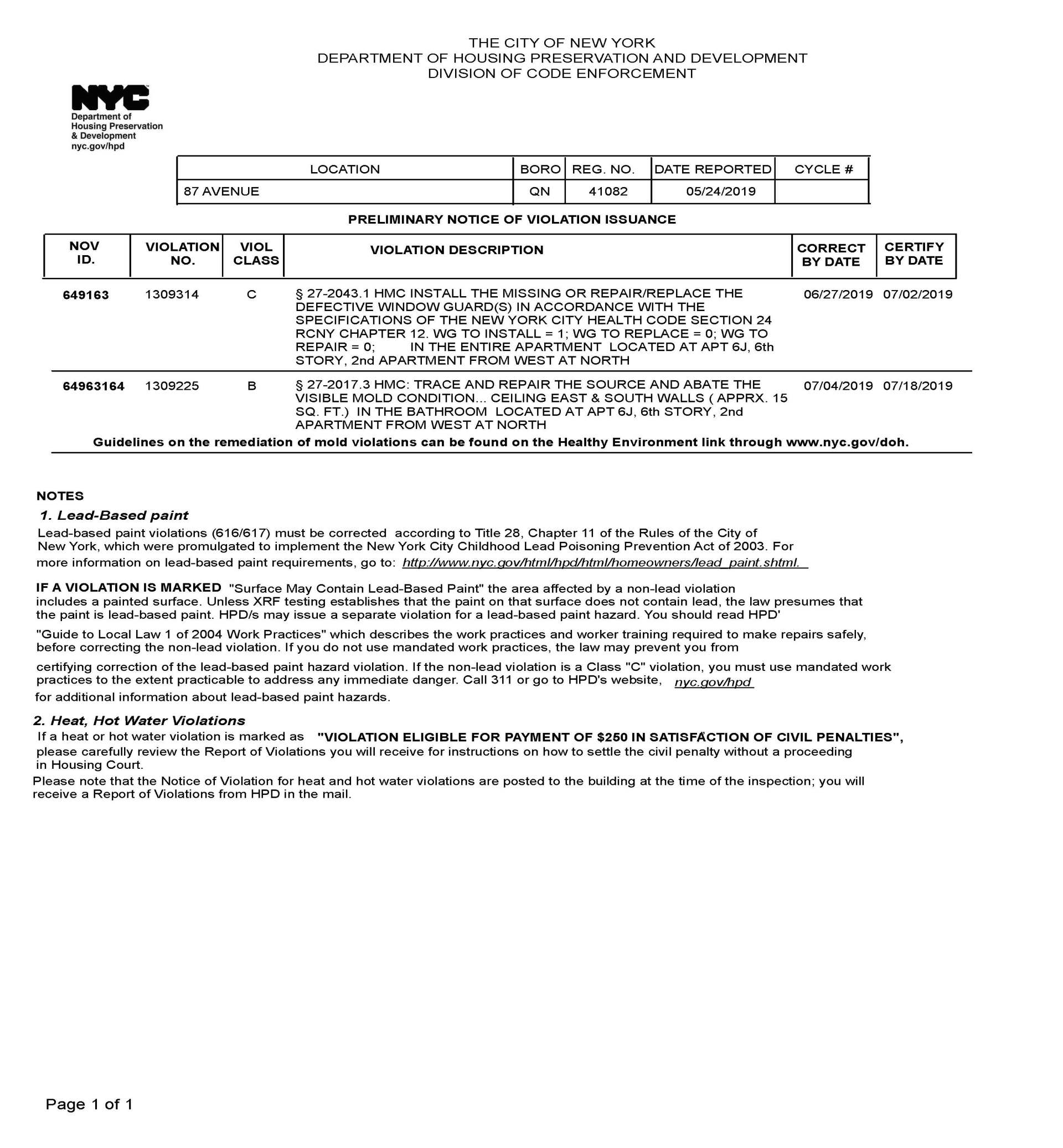HPD and DOH Mold Violations
HPD and DOH Mold Violations
Clearing mold violations just got a whole lot harder, but we can help soften the headache...and the price
Get Started
Get Started
Drop us a line and we’ll get back to you!

The New World of NYC Mold Compliance
The New World of NYC Mold Compliance
Local Law 61 of 2018 made the cleanup of mold more onerous for NYC buildings. As of January 2019, buildings that receive class B and C mold violations issued by the NYC Housing and Preservation Dept (HPD) have to hire a NY state licensed mold assessor and a separate NY state licensed mold remediation contractor to address and ultimately clear the violation.
This in addition to Local Law 55 of 2018 which requires buildings to annually inspect apartments for mold and pests, and which lays out "safe work practices" by which mold and pests must be addressed.
You're Being Judged
You're Being Judged
LL84/133 energy benchmarking data is no longer going into a black hole. It is being used to make a judgement on your building, one which could potentially have an effect on its value.
No matter how you do your annual benchmarking filings(with us, with another company, or by yourself), it is worth taking the time to understand how your buildings annual benchmarking reporting informs your EnergyStar score which in turn informs your letter grade. Whoever does your benchmarking should understand and be able to articulate to you how the algorithm works, how your grade is determined, and what you can do about it.
Frequently Asked Questions


